Life
Sign up for our newsletter
We summarize the week's scientific breakthroughs every Thursday.
-
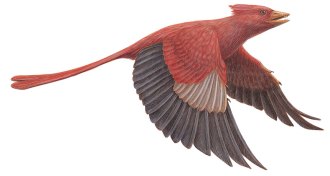 Life
LifeSome lucky birds escaped dino doomsday
Dino doomsday took out early birds too, but a lucky few survived.
By Susan Milius -
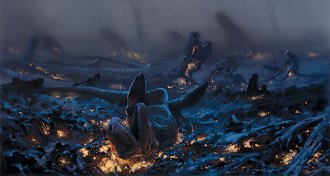 Earth
EarthDevastation detectives try to solve dinosaur disappearance
Dinosaurs and others faced massive losses 66 million years ago from an asteroid impact, volcanic eruptions or maybe a mix of the two.
-
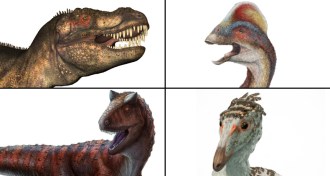 Paleontology
PaleontologyBony head ornaments signal some supersized dinosaurs
Bony headwear, like bumps and horns, is tied to bigger bodies in the theropod dinosaur family tree.
-
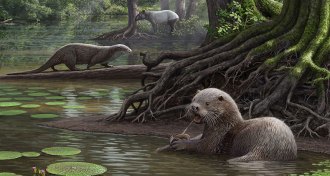 Paleontology
PaleontologyAncient otter of unusual size unearthed in China
Fossils unearthed in China reveal a newly discovered, now-extinct species of otter that lived some 6.2 million years ago.
By Meghan Rosen -
 Paleontology
PaleontologyAncient giant otter unearthed in China
Fossils unearthed in China reveal a newly discovered, now-extinct species of otter that lived some 6.2 million years ago.
By Meghan Rosen -
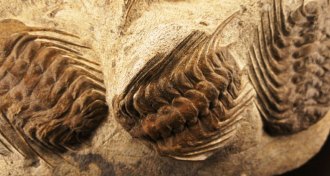 Life
LifeAsteroid barrage, ancient marine life boom not linked
Impacts from asteroid debris probably didn’t trigger the boom in marine animal diversity around 471 million years ago during the Great Ordovician Biodiversification Event.
-
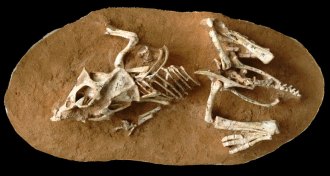 Paleontology
PaleontologyBaby dinosaurs took three to six months to hatch
Growth lines on teeth indicate a surprisingly long incubation period.
-
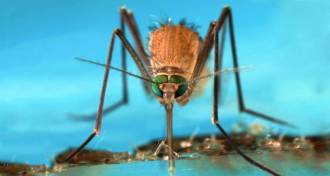 Life
LifeWhat a mosquito’s immune system can tell us about fighting malaria
Immune system messengers carried in microscopic sacs help mosquitoes fend off malaria, new research suggests.
-
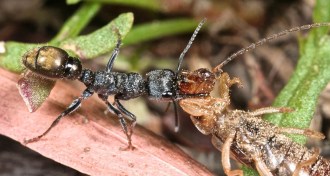 Animals
AnimalsDesert ants look to the sky, rely on memory to navigate backward
Desert ants appear to use a combination of visual memory and celestial cues to make it back to the nest walking butt-first, researchers find.
-
 Animals
AnimalsHow desert ants navigate walking backward
Desert ants appear to use a combination of visual memory and celestial cues to make it back to the nest walking butt-first, researchers find.
-
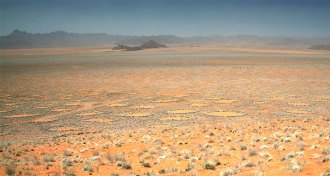 Ecosystems
EcosystemsIn debate over origin of fairy circles, both sides might be right
Odd bare spots called fairy circles in African grasslands might be caused by both termites and plants.
By Susan Milius -
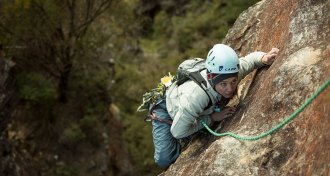 Life
LifeA message to rock climbers: Be kind to nature
Scientists are only just starting to figure out the impacts that the sport of rock climbing is having on cliff ecosystems.